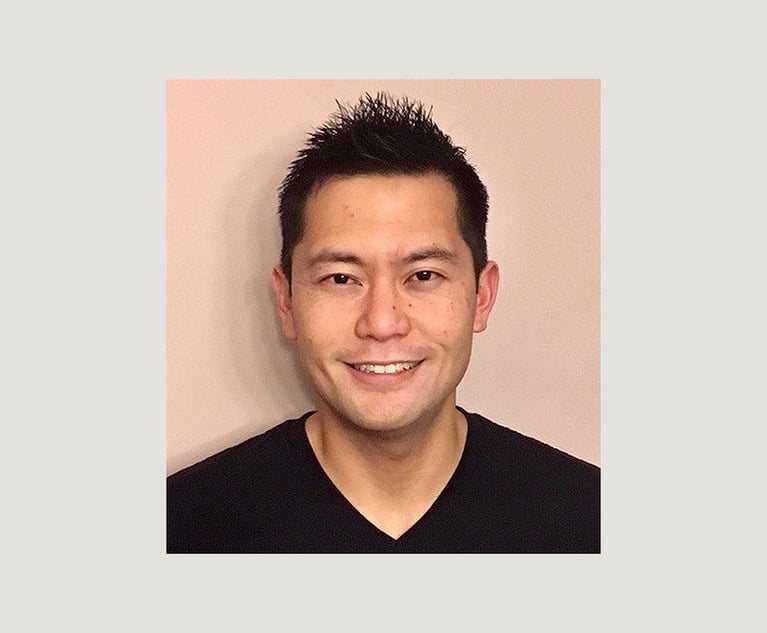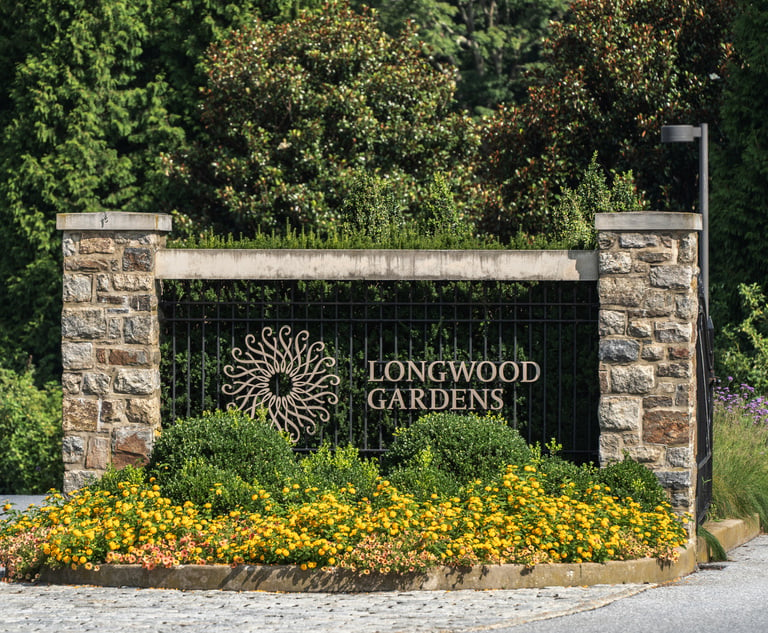 Will Sylianteng of Wes Litigation Group.
Will Sylianteng of Wes Litigation Group. Authentication and Proof in the Face of the 'Deepfake Denial'
The more troubling issue for us practitioners lies not with the denials made by the rich and famous, but rather, the "deepfake denials" we are likely to see with increasing frequency in our more mundane cases, now that the AI technology used to create these "deepfakes" become more readily available to the public.
May 25, 2023 at 12:20 PM
6 minute read
Recently, in the case of Huang v. Tesla, 19cv346663 (California Superior Court, County of Santa Clara), Tesla attorneys argued that their client's CEO, Elon Musk, could not "admit or deny" the accuracy of videotaped statements allegedly made by him because "of the ease with which deepfakes can be made." The statement at issue, which was allegedly made by Musk in 2016 involved the autonomous driving capabilities of the Tesla Model S and Model X vehicles.
Specifically, in the video, which had been available for years on the internet, Musk can be heard saying that those vehicles had the capability (in 2016) of driving "autonomously with greater safety than a person. Right now."
This content has been archived. It is available through our partners, LexisNexis® and Bloomberg Law.
To view this content, please continue to their sites.
Not a Lexis Subscriber?
Subscribe Now
Not a Bloomberg Law Subscriber?
Subscribe Now
NOT FOR REPRINT
© 2025 ALM Global, LLC, All Rights Reserved. Request academic re-use from www.copyright.com. All other uses, submit a request to [email protected]. For more information visit Asset & Logo Licensing.
You Might Like
View All
Lawsuit Against Major Food Brands Could Be Sign of Emerging Litigation Over Processed Foods
3 minute read
Plaintiff Argues Jury's $22M Punitive Damages Finding Undermines J&J's Talc Trial Win
4 minute read
Superior Court Directs Western Pa. Judge to Recuse From Case Over Business Ties to Defendant
3 minute read
Trending Stories
- 120 New Judges? Connecticut Could Get Wave of Jurists
- 2Orrick Loses 10-Lawyer Team to Herbert Smith in Germany
- 3‘The US Market Is Critical’: KPMG’s Former Head of Global Legal Services On the Legal Arm of the Big Four Firm Entering the US
- 4Justice Marguerite Grays Elevated to Co-Chair Panel That Advises on Commercial Division
- 5McDermott Continues UK Growth With Another Partner Hire in London
Who Got The Work
J. Brugh Lower of Gibbons has entered an appearance for industrial equipment supplier Devco Corporation in a pending trademark infringement lawsuit. The suit, accusing the defendant of selling knock-off Graco products, was filed Dec. 18 in New Jersey District Court by Rivkin Radler on behalf of Graco Inc. and Graco Minnesota. The case, assigned to U.S. District Judge Zahid N. Quraishi, is 3:24-cv-11294, Graco Inc. et al v. Devco Corporation.
Who Got The Work
Rebecca Maller-Stein and Kent A. Yalowitz of Arnold & Porter Kaye Scholer have entered their appearances for Hanaco Venture Capital and its executives, Lior Prosor and David Frankel, in a pending securities lawsuit. The action, filed on Dec. 24 in New York Southern District Court by Zell, Aron & Co. on behalf of Goldeneye Advisors, accuses the defendants of negligently and fraudulently managing the plaintiff's $1 million investment. The case, assigned to U.S. District Judge Vernon S. Broderick, is 1:24-cv-09918, Goldeneye Advisors, LLC v. Hanaco Venture Capital, Ltd. et al.
Who Got The Work
Attorneys from A&O Shearman has stepped in as defense counsel for Toronto-Dominion Bank and other defendants in a pending securities class action. The suit, filed Dec. 11 in New York Southern District Court by Bleichmar Fonti & Auld, accuses the defendants of concealing the bank's 'pervasive' deficiencies in regards to its compliance with the Bank Secrecy Act and the quality of its anti-money laundering controls. The case, assigned to U.S. District Judge Arun Subramanian, is 1:24-cv-09445, Gonzalez v. The Toronto-Dominion Bank et al.
Who Got The Work
Crown Castle International, a Pennsylvania company providing shared communications infrastructure, has turned to Luke D. Wolf of Gordon Rees Scully Mansukhani to fend off a pending breach-of-contract lawsuit. The court action, filed Nov. 25 in Michigan Eastern District Court by Hooper Hathaway PC on behalf of The Town Residences LLC, accuses Crown Castle of failing to transfer approximately $30,000 in utility payments from T-Mobile in breach of a roof-top lease and assignment agreement. The case, assigned to U.S. District Judge Susan K. Declercq, is 2:24-cv-13131, The Town Residences LLC v. T-Mobile US, Inc. et al.
Who Got The Work
Wilfred P. Coronato and Daniel M. Schwartz of McCarter & English have stepped in as defense counsel to Electrolux Home Products Inc. in a pending product liability lawsuit. The court action, filed Nov. 26 in New York Eastern District Court by Poulos Lopiccolo PC and Nagel Rice LLP on behalf of David Stern, alleges that the defendant's refrigerators’ drawers and shelving repeatedly break and fall apart within months after purchase. The case, assigned to U.S. District Judge Joan M. Azrack, is 2:24-cv-08204, Stern v. Electrolux Home Products, Inc.
Featured Firms
Law Offices of Gary Martin Hays & Associates, P.C.
(470) 294-1674
Law Offices of Mark E. Salomone
(857) 444-6468
Smith & Hassler
(713) 739-1250





